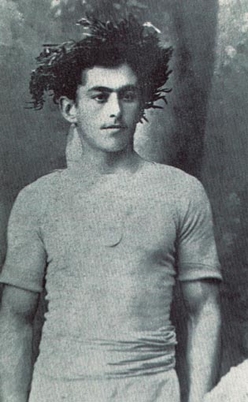1. Overview
Ioannis Persakis (Ιωάννης ΠερσάκηςGreek, Modern; 1877-1943) was a Greek athlete who specialized in athletics. He is best known for his participation in the 1896 Summer Olympics held in his hometown of Athens, where he secured a bronze medal in the men's triple jump event. His performance at these inaugural modern Olympic Games marked a significant achievement in early Greek Olympic history.

2. Life and Background
Ioannis Persakis's life spanned from the late 19th century into the mid-20th century, primarily centered in Greece.
2.1. Early Life
Ioannis Persakis was born in 1877 in Athens, the capital city of Greece. Details regarding his specific early life and upbringing beyond his birthplace are not extensively documented, but he emerged as a notable athlete in the burgeoning Greek sports scene of the late 1800s.
2.2. Family
Ioannis Persakis was not the only athlete in his family to compete at the 1896 Athens Olympics. He had a younger brother, Petros Persakis, who also participated in the same Games. Petros Persakis achieved distinction in gymnastics, earning two medals during the competition. This made the Persakis brothers a notable athletic duo representing Greece at the first modern Olympic Games.
3. Athletic Career
Ioannis Persakis's athletic career prominently features his involvement in the 1896 Athens Olympics, where he achieved his most significant success.
3.1. 1896 Athens Olympics
Ioannis Persakis competed in the men's triple jump event at the 1896 Summer Olympics in Athens. The competition took place on April 6, 1896, making it one of the very first athletic events of the modern Olympic Games. A total of seven athletes from five different countries participated in the triple jump. The format of the competition was straightforward, with the winner determined by a single trial jump.
Persakis delivered a strong performance, recording a best jump of 41 ft (12.52 m). This distance earned him the third-place finish in the event. Although modern Olympic conventions would award a bronze medal for this placement, it is notable that at the 1896 Athens Olympics, third-place finishers were traditionally awarded a certificate rather than a medal. However, for historical continuity and common understanding, his achievement is universally recognized as a bronze medal equivalent.